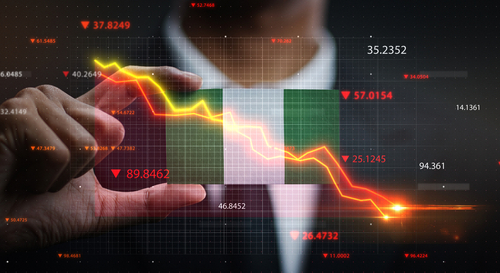
WEALTH PATH
Stay Ahead Of The Recession By Following These Tips
Less than two years after Nigeria exited a COVID-19 induced recession, discussions have ramped up about whether the Giant of Africa is headed toward another recession, it's third in seven years.
Technically speaking, a recession occurs when there are two consecutive quarters of negative Growth Domestic Product (GDP) growth. By this definition, Nigeria seems protected from a recession as the country just experienced its sixth consecutive quarter of growth. However, non-technically speaking, a recession is also a decline in the economic output of an economy accompanied by a decrease in income and employment. Therefore, contextually, Nigeria has shown signs of a recession for several months now.
Inflation is at 18.6%, the highest in 5 years, Diesel averaged N733.78/litre in June and the price of food and everyday items has more than doubled since the beginning of the year. To make things worse, the unemployment rate is projected to reach 33% this year. The Central Bank has attempted some policies to tame soaring prices including raising the benchmark interest rate to 14%, but prominent economists and other experts say that it is not nearly enough. The truth is that the government is limited in what it can do as the cause of rising prices can be traced back to the Russo-Ukrainian war amongst other exogenous factors.
The question of whether or not we are in a recession is not as important as how to protect yourself from it. One of the best ways to do so is to earn additional income and returns by investing wisely. In recessions, high risk asset prices tend to decline but good quality income-yielding bonds and equities tend to do better. You can also create a savings account for emergencies with our Money Market Fund.



.jpg)
.jpg)
.jpg)